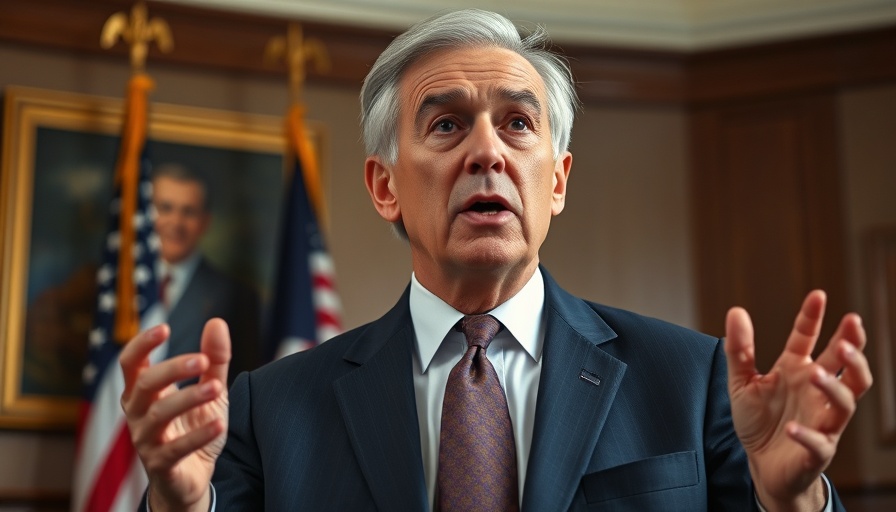
Urgent Implications of the Debt Ceiling Crisis
As the U.S. nears the critical "X-date" of August, warnings from Treasury Secretary Scott Bessent highlight a looming financial crisis precipitated by the potential failure of Congress to raise or suspend the debt ceiling. This situation isn't just a number on a government ledger; it represents the very foundation of America's financial stability and global leadership.
The Cautionary Tales of Debt Ceiling Stand-Offs
Historical context reminds us that prior negotiations surrounding the debt ceiling have not only resulted in political skirmishes but also led to adverse effects on financial markets and everyday Americans. For example, the 2011 debt ceiling standoff led to the first-ever downgrade of U.S. government credit ratings, causing stock market turmoil that shook consumer confidence. The current warnings from the Treasury echo these past crises, illustrating that the ramifications of inaction could ripple through the economy, affecting businesses and households alike.
Political Dynamics: A Tightrope Walk
The plea from Bessent could shake the political landscape as Republicans weigh the prospect of agreeing to a debt limit increase against their ongoing philosophy of fiscal restraint. The dichotomy between the necessity for increased funding and the ethos of reduced government spending poses a challenge for lawmakers. With the backdrop of a tax cut and border security bill on the table, the need for compromise is heightened. Observers recognize that an agreement could provide a tactical advantage for Republicans as they negotiate their broader budget agenda.
The Role of Extraordinary Measures
Bessent's discourse also sheds light on the “extraordinary measures” that the Treasury has adopted. These are temporary strategies designed to remain under the debt ceiling while still meeting the government's financial obligations. However, such solutions are not indefinite—an understanding that higher powers within Congress must heed to avoid catastrophic fallout.
What’s at Stake for Everyday Americans?
This situation transcends political narrative; it tangibly impacts citizens. A default could cause interest rates to spike, affecting loans for cars, homes, and education, ultimately leading families into financial distress. It’s crucial for the public to understand that negotiations around the debt ceiling are not mere political theater; they directly influence the economic health of every American.
Take Action: Be an Informed Citizen
As the debate intensifies, it’s vital for citizens to remain engaged and informed about the developments in Congress. Following the discussions through reliable news outlets and contacting legislative representatives to express concerns or opinions can make a significant difference. An informed electorate is crucial to holding representatives accountable and ensuring sound fiscal policies.
 Add Row
Add Row  Add
Add 




Write A Comment